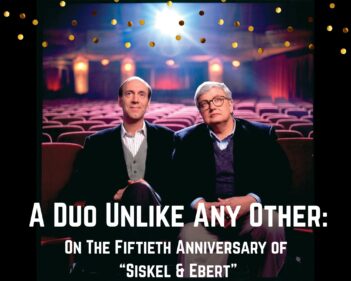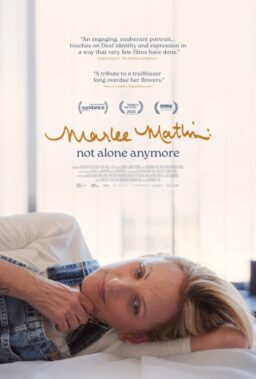This will be the year that revenue from streaming passes revenue from DVD sales, according to a recent article in the Hollywood Reporter.
How do we feel about this? I ask as a movie-watcher who subscribes to Netflix, Hulu and Fandor, and also rents online from Amazon and Vudu. iTunes gets none of my business because the iTunes Store has been misbehaving on my computer. I average three streaming movies a week and three or four on DVD. I’m not an average consumer, because a lot of my viewing is for work. But often of an evening I’ll stream for pleasure. All of my streaming happens through a Roku Player on HDTV.
Does anyone recall the time when HBO was first test-marketing Movies on Demand? There was much hilarity when it was learned that their Florida test market wasn’t exactly a model of digital automation. Apparently actual employees were taking telephone orders and then scrambling around to push movies into playback machines–on video cassettes, because DVDs hadn’t been introduced.
These days the video quality of most movies is acceptable to excellent (for streaming, that is), assuming the films themselves come from good prints. Netflix and Fandor deliver flawless service, although my Hulu has occasionally been freezing, presumably for buffering, in the high-use evening hours. On the whole I’m a happy camper. The first streaming movie I saw online was an old B Western from Republic, and the image was the size of a postage stamp.
I buy DVDs when I need to. Recently, for example, I purchased Bela Tarr‘s “Satantango” from Facets Multimedia, because it absolutely is not available online. Many, many films are not. I find from instantwatcher.com, a site that monitors Netflix, that the most-watched titles are not likely to be by Bela Tarr. Their top five titles at this moment are “The Rum Diary,” “Nude Nuns With Big Guns,” “Best Evidence: Top 10 UFO Sightings,” “The Patriot” and “Absinthe.” Netflix has good depth, however, and every night before I turn in, I suggest a “daily streamer” on my Twitter and Facebook. Recent titles: “My Left Foot,” “What's Eating Gilbert Grape,” “Lost in Translation” “Merci Pour le Chocolat,” “Still Walking,” “French Cancan,” “The Man Who Wasn't There” (2001), and “Pi.” All of those are on Netflix Instant except for Renoir’s “French Cancan,” which is part of the Criterion Collection on Hulu, which bought the Criterion rights.
Because I wanted to suggest films from several different sources, I asked my Facebook “friends” how they felt about Hulu and Fandor. Many said Hulu was fine with them. Many didn’t know about Fandor. The Hulu supporters were fibbing. I can tell from click counts that the vast majority of my FB folks use Netflix Instant, and that’s it. Hulu draws barely 15% as many clicks, but of course most people use Hulu to stream TV, and by virtue of their excellence, Hulu’s Criterion titles are less popular than “Nude Nuns With Big Guns.” Nothing alarms some moviegoers more than the news that a movie is a masterpiece.
What does this have to do with the watershed we’re now passing, when streaming revenues pass DVD sales? A great deal, and a lot of it is bad news.
The companies which manufacture and distribute DVDs are in business to make a profit. They invest much of their income in the cost of restoring films, especially classics, so the DVD version usually has better visual quality than any 35mm print you’re lucky enough to be able to see. If DVD sales decline, film restoration declines right along with them.
I was talking about this not long ago with an executive of a respected DVD label–never mind which one. He said Netflix was killing him. For years, when he released a new DVD title, he could count on a certain number of sales in three ways: (1) Direct mail or Amazon; (2) video stores; and (3) a bulk order from Netflix. Judging by the predicted sales, he could judge his costs and cover his overhead.
“Now what’s happened,” he said, “is that video stores are closing, because of streaming. Amazon sales are down because Amazon Instant streams a lot of titles. And people don’t buy if they figure a movie will be streaming on Netflix. Previously, Netflix would buy a lot of titles to service their customers who got movies by mail. But with their price changes, they forced a lot of those customers to choose between mail and streaming. As a result, Netflix needs a lot fewer DVDs in order to be able to offer a title.”
This is all obviously true. What does it mean for us? It means the day is coming when non-blockbuster titles will undergo a sudden income crisis. If you can sell between several hundred and a few thousand physical DVDs, you have a good chance of breaking even. If you have a Tiffany product like Criterion, you can afford the considerable costs of film restoration. When income dries up, those kinds of films become more challenging to manufacture and distribute.
Criterion seems to be fairly well-situated for now, because their customers love their beautiful prints, value the extras like commentary tracks and booklets, and enjoy building a collection. Because Criterion has always had excellent taste, it has preserved and made available countless films that were long completely unavailable. Would you believe that Hulu (which doesn’t yet have every Criterion title) offers 222 films from Japan and 201 from France–two of the world’s three great cinemas?
But income from streaming is far lower than income from rentals and sales. Criterion’s deal with Hulu helps them amortize the cost of their back catalog, but hardly pays for new restorations.
I know of a couple of companies that even now are releasing new DVDs of out-of-print movies. The Warner Archive regularly publishes back titles from their own catalog, in limited editions. And an enterprising company named Twilight Time buys the rights to publish 3,000 copies of unavailable titles (“When they’re gone, they’re gone!”). Many studios just aren’t interested in those kinds of DVD sales; Warners matches Disney as the most adept at marketing old films.
All of this leads us by a meandering path to my final destination, Fandor.com. This is a streaming outlet that specializes in independent films, classics, silent films, foreign films, documentaries and shorts. Its site is rich with essays about directors, genres and film history. The comments are invariably well-written. And Fandor shares income 50/50 with independent filmmakers! That shows where its heart is.
You will not find “Prometheus” offered anytime soon on Fandor. They appeal to moviegoers who have have “Prometheus” covered. Their customers seem to want to explore more deeply and widely than most streaming customers. I’m rummaging at their site right now, and seeing Mark Rappaport‘s “From the Journals of Jean Seberg” (1995); Andrei Tarkovsky’s “The Sacrifice” (1986; Raoul Walsh’s “Sea Devils” (1952); Mike Ott’s “Littlerock,” which I favorably reviewed in 2010; Angelina Maccarone’s “Charlotte Rampling: The Look” (2011); Curtis Harrington’s “Ruby” (1977); Joseph Losey’s “King and Country” (1964), George Hickenlooper’s “Some Call It a Sling Blade” (1999) and “Phantom” (1922). Also a lot of Buster Keaton.
You haven’t heard of some of these? That’s sort of the idea. It’s nice to know that a legendary figure like Mark Rappaport, whose films I reviewed in first run, can still share in his revenue.
Fandor has about the same monthly fee as Hulu or Netflix. I’m not saying you should drop everything and subscribe. Some people do a rotation from one service to another, to increase their variety. What I am saying is that sooner or later, streaming video is a bill that will come due. Independent films do not make themselves. DVDs are not self-manufactured. Income from streaming is not paying the rent and keeping the lights on. Sooner or later, one way or another, streaming will have to pay for the films it streams. That means us.
On Fandor.com, click “subscribe” for first 30 days free. This link leads to “From the Journals of Jean Seberg,” starring Mary Beth Hurt, and then just look around. Note, 6 p.m. June 8: I wrote that the quality of streaming movies was “acceptable to excellent,” I have now added the words “for streaming, that is.” Here is a most useful editorial from Cineaste magazine. It says the best DVDs and Blu-rays are five to ten times better than streaming.












